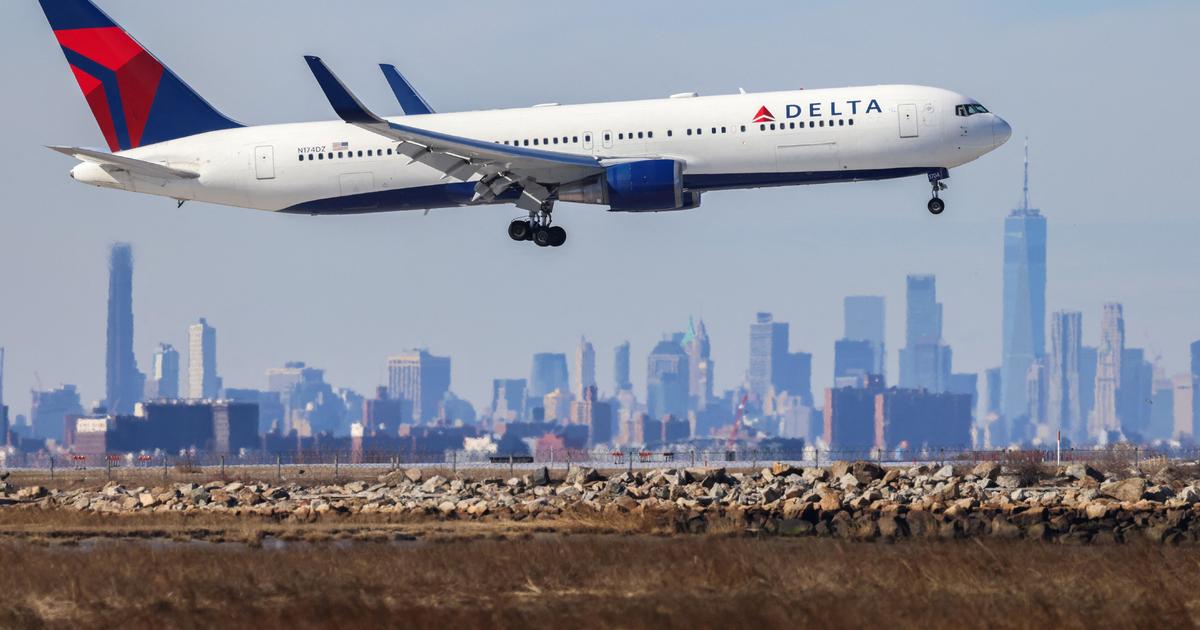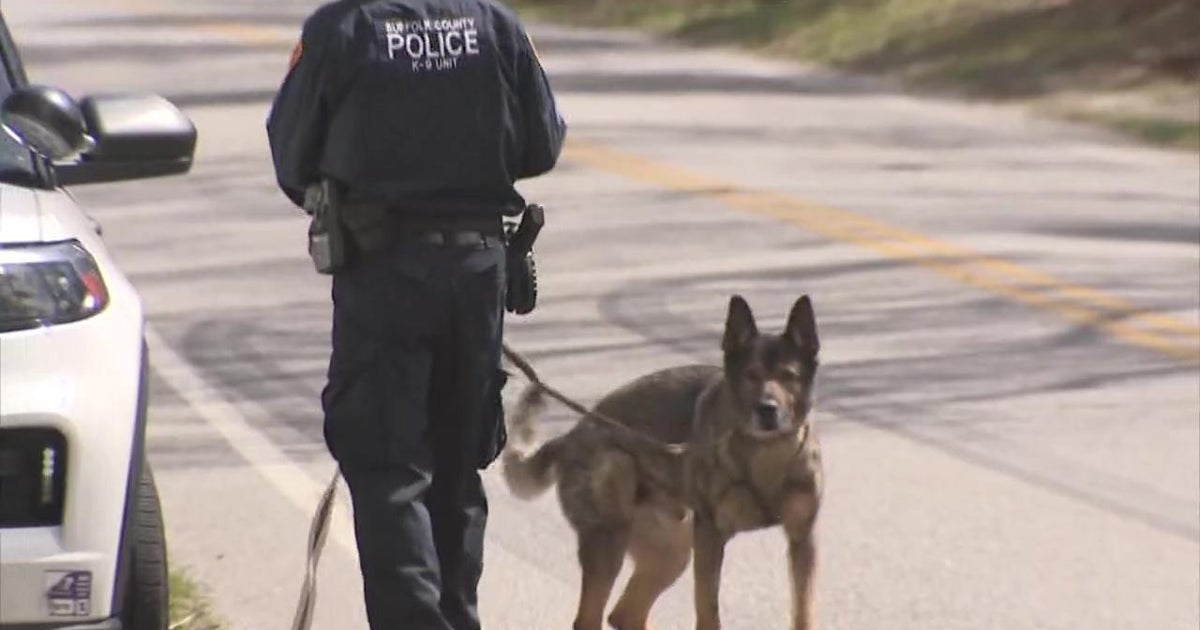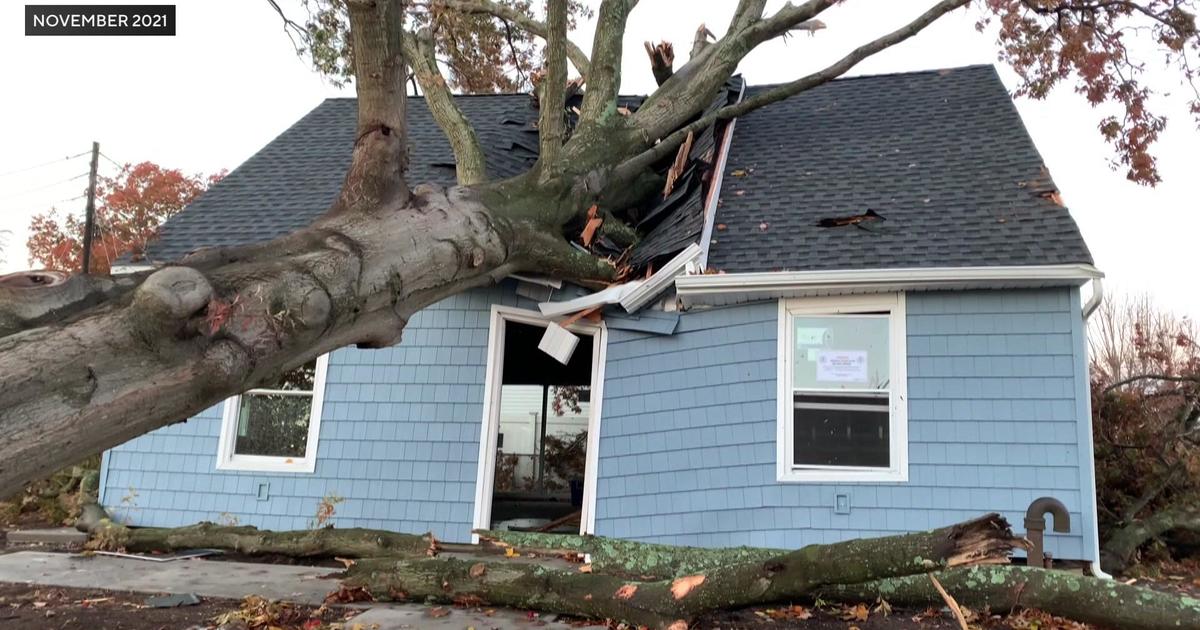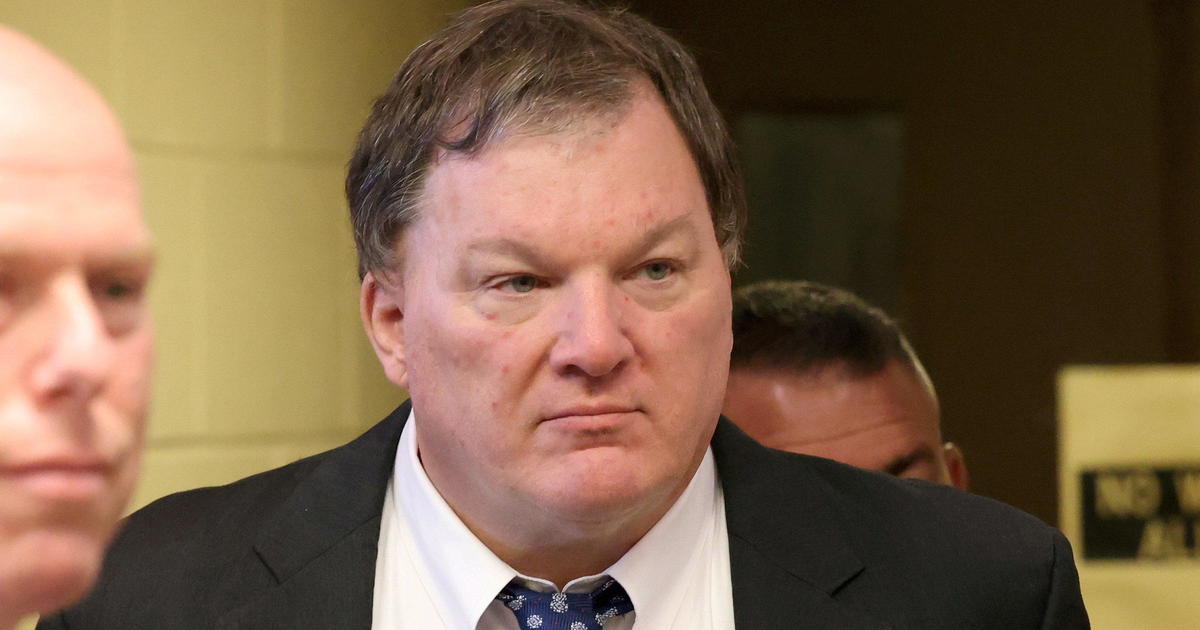Judge Tosses Most Serious Charges In Hazing Death Of Penn State Fraternity Pledge
BELLEFONTE, Pa. (CBSNewYork/AP) -- A judge on Friday threw out involuntary manslaughter and felony assault counts filed against members of a Penn State fraternity in a pledge's alcohol hazing-related death, ordering 12 of the frat brothers to stand trial on lesser counts.
District Justice Allen Sinclair dismissed charges altogether against four of the members of the now-shuttered Beta Theta Pi fraternity. Fourteen former members are now headed to trial in the case. Two had previously agreed to waive a preliminary hearing.
Charges remaining range from alcohol violations and hazing to reckless endangerment.
"Obviously now the teeth have really been taken out of the commonwealth's case," defense attorney Michael Engle said.
The involuntary manslaughter and aggravated assault charges carried up to 20 years in prison, but now the maximum the former frat members could face is two years.
"They convinced the judge that you could not judge this as one joint venture, that you had to really look at each defendant and his own act," CBS legal analyst Rikki Klieman told WCBS 880's Alex Silverman. "What you have seen here is masterful lawyering on the part of really well-skilled criminal defense lawyers who these defendants were fortunate enough that they had the means to hire."
"There's something really commendable in the work of these lawyers and there's something very sad about the issue of justice for the rich," Klieman added.
The decision followed a hard-fought, unusually long, seven-day preliminary hearing in which the defendants and a platoon of defense attorneys wedged into the courtroom fought against allegations that a night of hazing and heavy drinking caused the death of 19-year-old Tim Piazza on Feb. 4.
Centre County District Attorney Stacy Parks Miller said she planned to seek a county judge's permission to refile involuntary manslaughter charges, and might also attempt to reinstate aggravated assault charges.
"To start over again at this stage may be what we call a fool's errand," Klieman said.
Parks Miller rejected any suggestion she may have overcharged in the case, which was the subject of a grand jury investigation that recommended charges.
"Was it a grand jury overreach?'' Parks Miller said outside the courthouse. "I didn't make that decision.''
She said she believes the judge ruled based on an assessment of the defendants' individual roles, which she called "a huge legal error'' in a case she pursued based on a theory of accomplice liability. Sinclair declined to comment about the case after he ruled.
"Sometimes judges get it wrong -- that's why we have an appeal,'' she said.
Defense attorneys said they would challenge any effort to restore the dismissed charges, and will work to whittle down what remains.
"We're going to challenge any of these charges that were bound over that we feel shouldn't have been,'' said attorney Andy Shubin, whose client still faces six counts of reckless endangerment, down from 14, as well as hazing and alcohol law allegations.
Parks Miller said a current FBI attempt to recover suspected deleted footage from the Beta Theta Pi security system could produce new evidence, and may warrant additional charges.
Parks Miller had argued that members of the fraternity pressured Piazza and other pledges to drink heavily, plying them with wine, vodka and beer after a ceremony to mark their decision to pledge the organization.
WEB EXTRA: Full List Of Charges | Details Of Alleged Hazing
That pressure included running them through a speed-drinking "gauntlet'' and directing them to collectively drain a large bottle of vodka.
The security video recorded Piazza, a sophomore engineering student from Lebanon, New Jersey, appearing intoxicated and being led to a couch after 11 p.m. A few minutes later, he fell head-first down a set of basement stairs and had to be carried back up in an unconscious state.
For several hours members of the fraternity appeared to take half-hearted and even counterproductive measures to tend to their injured friend, pouring liquid on him and strapping on a loaded backpack to prevent him from rolling over and choking on vomit.
In the early morning hours Piazza was pictured stumbling from the couch to other areas on the vast house's first floor, including falls into a door and onto a stone floor.
He somehow ended up back in the basement the next morning and was again carried back upstairs to a couch. It took another 40 minutes for fraternity members to call an ambulance.
Authorities said Piazza had ingested a dangerous amount of alcohol and suffered severe head and abdominal injuries. He soon died at a hospital.
"This wasn't boys being boys," Tim's father, Jim Piazza, told CBS News in May. "This was murder of our son. They tortured him for 12 hours. They let him suffer for 12 hours. He died a slow and painful death at the hands of these 'men of principle,' as they call it."
Piazza's parents watched the seven-day hearing from the gallery's front row, and left the courthouse without commenting. Their civil lawyer, Tom Kline, said they planned to return home and consider that their son won't be at Penn State's home football opener on Saturday.
"This is no day for celebration for anyone,'' Kline said.
Defense attorneys argued that their clients' roles were minimal or their actions did not amount to criminal behavior. They argued the students had little reason to anticipate tragic results from a night that also included an alcohol-fueled social mixer with a sorority group.
Piazza's "tragic death was an accident, and that's what the judge saw,'' said defense attorney Frank Fina. He called the defendants' experience horrible and said they have been demonized.
Parks Miller said many of the defense arguments would be more suitable for a jury to consider. She disputed a suggestion that defendants would not have known of the danger because no one had died during the fraternity chapter's long history.
"As far as this idea, 'Well, nobody died before,' do they really think they get a free death before someone is held responsible?'' Parks Miller told the judge.
Engle argued that "the voluntariness of the drinking'' is an important factor when considering Piazza's fate.
"What we have is evidence from this record that this tragic death was simply not foreseeable here,'' Engle said.
He challenged Parks Miller's approach to charging the men as accomplices, arguing that would require a principal actor that was not established.
"You've heard over and over again, all of these individuals are accomplices, but as a matter of law, these individuals can't be accomplices with one another,'' he told the judge.
Parks Miller said the speed-drinking gauntlet was designed by the group "for maximum devastation.''
(© Copyright 2017 CBS Broadcasting Inc. All Rights Reserved. The Associated Press contributed to this report.)



